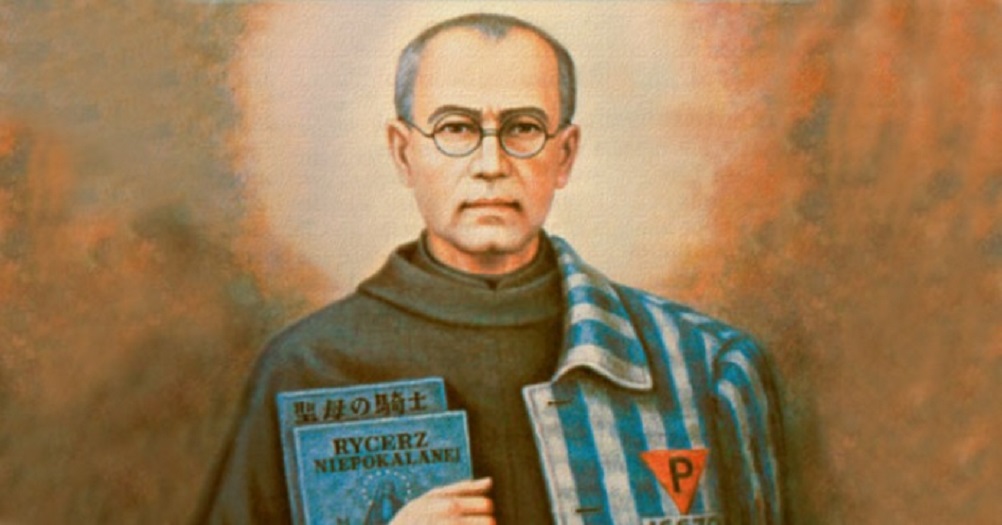When it comes to such wounds as the violent rallying on August 12 in Charlottesville, Virginia, God is in control. One need to look no further than the two Catholic saints who had their feast days mere days before, and after, the protests.
On August 9, three days before the protests, the Catholic Church celebrated the feast day of St. Edith Stein, also known as Teresa Benedicta of the Cross. Stein was born in 1891, to a Jewish family, in a part of Germany which is now Poland. Although for a time she gave up on God completely, in 1922 she was baptized Catholic, after reading the autobiography of Teresa of Avila.
Stein would spend only a few short years as a nun at the Carmelite monastery in the Netherlands in 1938, before it was occupied by Nazis in 1940. While Dutch Jews who had converted to Catholicism were once safe, the Nazis arrested them after Dutch bishops denounced the Nazis. Teresa and her sister Rosa, also Catholic, were arrested on August 2, 1942, and would die at the Auschwitz gas chambers a week later.
There are fascinating aspects of her life and death. Internet pages on her point to Joanne Mosley’s book, Edith Stein: Modern Saint and Martyr, explaining how Stein for years did not expect to survive the war. She requested permission to make a will, with fellow nuns recalling how she had been “quietly training herself for life in a concentration camp, by enduring cold and hunger” when it came time for the Nazi occupation.
Stein even turned down a chance to escape, while at the concentration camp Westerbork. “If somebody intervened at this point and took away her chance to share in the fate of her brothers and sisters, that would be utter annihilation,” Stein said.
The Catholic Education Resource Center also has personal details about her death:
Reports from those who were close to Sister Teresa Benedicta in those final days show her to have been a woman of remarkable interior strength, giving courage to her fellow travelers and helping to feed and bathe the little ones when even their mothers had given up hope and were neglecting them. One woman who survived the war has written a description of Stein during the time their group was awaiting transportation to the East. Maybe the best way I can explain it is that she carried so much pain that it hurt to see her smile…In my opinion, she was thinking about the suffering that lay ahead. Not her own suffering — she was far too resigned for that — but the suffering that was in store for the others. Every time I think of her sitting in the barracks, the same picture comes to mind: a Pieta without the Christ. Although she did not seek death, Stein had often expressed her willingness to offer herself along with the sacrifice of Christ for the sake of her people, the Jews, and also for the sake of their persecutors. She was beatified by Pope John Paul II on May 1,1987.
Eleven years later, on October 11, 1998, Pope John Paul II canonized her.
Sixteen years prior, to almost the exact date, Pope John Paul II canonized another saint from Auschwitz. The Catholic Church celebrated the feast day of St. Maximilian Maria Kolbe on August 14.
Kolbe was arrested by the Gestapo on February 17, 1941, after having denounced the Nazis on his radio program and hiding thousands of Jews and other targeted groups from the Nazis. He was eventually sent to Auschwitz on May 25.
Death would come only a few months later. To deter escapes, ten men were randomly selected to be starved to death and one of them, Franciszek Gajowniczek, begged for mercy, on account of his family. Kolbe then volunteered to take his place.
Three weeks later, Kolbe was the only one of the ten still alive. He had spent that time comforting the other men at the time of their death, as he led them in song and prayer. Upon being found still alive, he was put to death by legal injection, on August 14.
Kolbe’s canonization took place on October 10, 1982, with a particularly memorable person present, Gajowniczek, the man Kolbe had saved.
Catholics and the Catholic Church have not merely spoken out against white supremacy through celebrating these annual feast days.
Professor Robert George tweeted several statements denouncing racism and hatred over the weekend and on Monday.
The idea of racial superiority (or inferiority) is disgusting and toxic. It is also inane–indeed, irrational. Still, some fools embrace it.
— Robert P. George (@McCormickProf) August 12, 2017
In addition to quoting U.S. Supreme Court Cases, Catholic clergy, and others, he also had his own suggestion for the Church.
If any white supremacists claim to be Catholic, their bishops should demand immediate renunciation of racism on pain of excommunication.
— Robert P. George (@McCormickProf) August 13, 2017
The United States Conference of Catholic Bishops released statements on Saturday and Sunday, which were shared over social media:
White supremacist groups, notably the KKK, have historically been anti-Catholic in addition to anti-Semitic and racist. As God has shown through these two saints, however, the evil of white supremacy do not have the last word.


